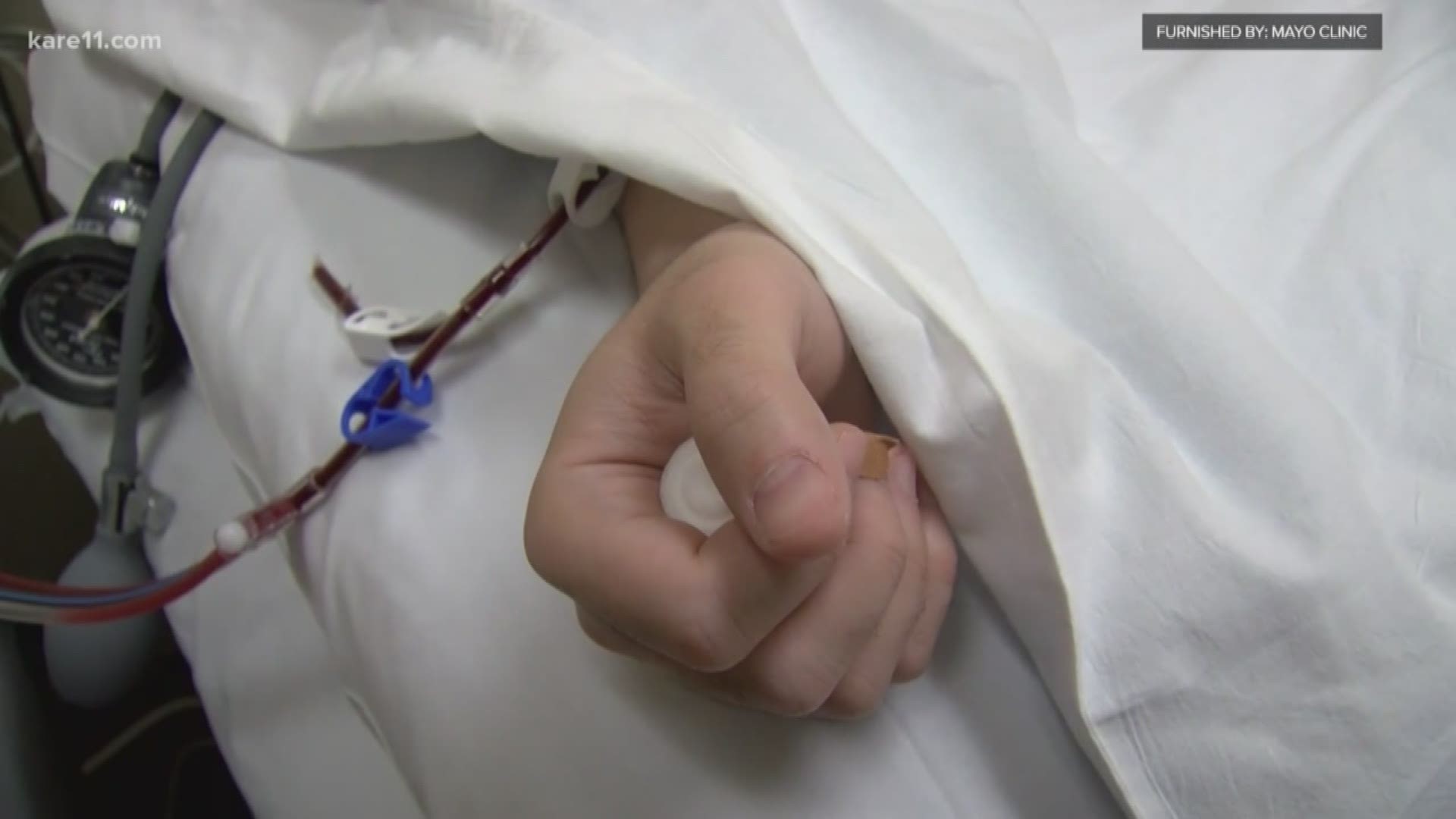ROCHESTER, Minnesota — Researchers around the world are looking at different ways to treat COVID-19 patients. One of those ways is through convalescent plasma therapy.
Patients who have recovered from the novel coronavirus that causes COVID-19 have antibodies in their blood that can fight the virus. A donor's plasma can then be transfused into a very sick COVID-19 patient who doesn't have that immunity yet.
On Friday, the U.S. Food and Drug Administration named Mayo Clinic as the national site for the Convalescent Plasma Expanded Access Program. The FDA anticipates through this effort they will be able to move thousands of units of plasma to patients who need it in the coming weeks.
"Our goal is to see if we can help people who are sick from going to the ICU and then help people who are in the ICU get out a little bit faster," said Dr. Michael Joyner, who is leading the program.
The therapy could also be used for those who are considered high risk, like healthcare workers, to offer some protection against the infection. The concept of using blood plasma from recovered patients to treat those who are sick isn't new and dates back to the 1890s.
The convalescent plasma program stems from a national initiative of physicians and investigators from 40 institutions who took it upon themselves to investigate using convalescent plasma to treat patients.
"The big bottleneck right now is not interest in the project; the big bottleneck is just identifying potential donors, carefully screening those donors, getting those donors who are eligible to a blood collection facility and then it has to go through all of the standard safety measures that go with blood collection," Dr. Joyner explained.
Dr. Joyner said he's unsure how long the program will last. They're looking to enroll 1,000 people or more and said it could go on for some time.
While more research needs to be done, early results have been promising.
"There is some data also emerging from New York City and Houston and while people are reluctant to put any hard numbers on things, there are some beginnings of what sound like some promising examples that may be useful," Dr. Joyner said. "One of the things we're trying to do with this expanded access program is to not only facilitate getting the treatment to patients, but also collect key data so we can actually try to understand the analytics in real time and then hopefully set the stage for randomized clinical trials down the road because this disease isn't going to go away magically any time soon."
Dr. Joyner said there will be a big push in the next one to two weeks to identify potential donors and get those people scheduled to donate. Dr. Joyner said those who might be eligible to donate should contact their provider.
Those who may be able to donate at Mayo can click, here, or contact convalescent.plasma@mayo.edu.
Those who can donate elsewhere, can find more info here.
Dr. Joyner added, " I think this is going to be particularly helpful at the end of this wave and then very helpful in suppressing a second wave, if it occurs."
KARE 11’s coverage of the coronavirus is rooted in Facts, not Fear. Visit kare11.com/coronavirus for comprehensive coverage, find out what you need to know about the Midwest specifically, learn more about the symptoms, and see what companies in Minnesota are hiring. Have a question? Text it to us at 763-797-7215. And get the latest coronavirus updates sent right to your inbox every morning. Subscribe to the KARE 11 Sunrise newsletter here. Help local families in need: www.kare11.com/give11.
The state of Minnesota has set up a hotline for general questions about coronavirus at 651-201-3920 or 1-800-657-3903, available 7 a.m. to 7 p.m.

